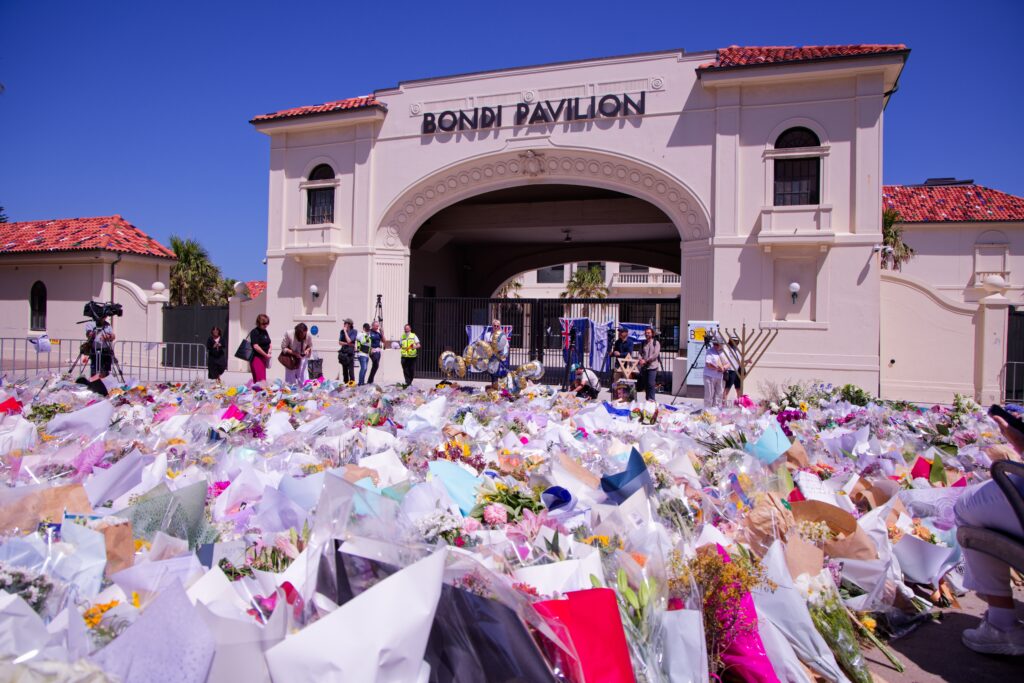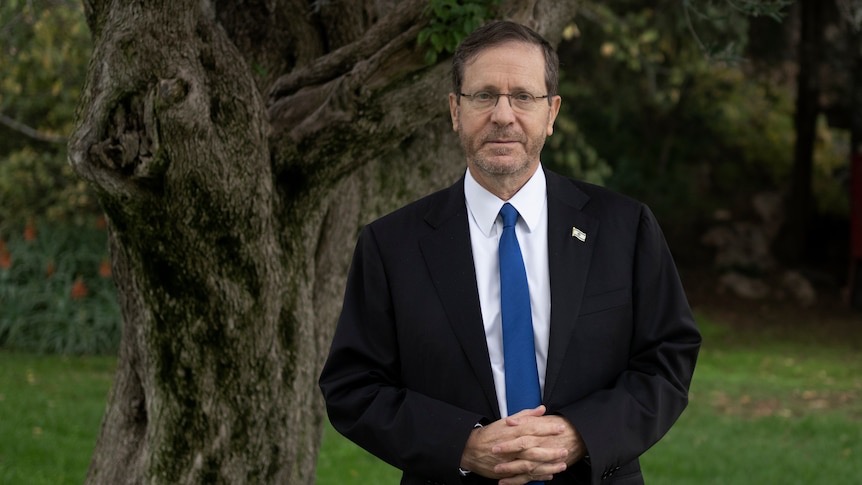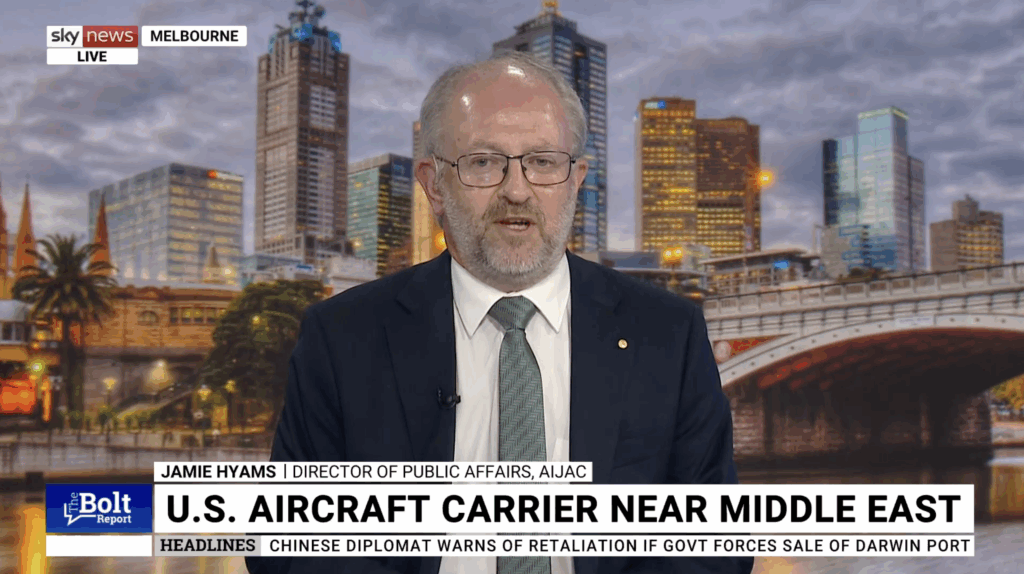IN THE MEDIA
Creativity and realism required for success in Middle East talks
September 3, 2010 | Colin Rubenstein
Colin Rubenstein
From: The Australian September 03, 2010
YESTERDAY in Washington, President Barack Obama formally launched the resumption of direct talks between Israel and the Palestinians after a 19-month hiatus. The US says it hopes the encounter between Israeli Prime Minister Benjamin Netanyahu and Palestinian Authority President Mahmoud Abbas, in the presence of Egyptian President Hosni Mubarak and Jordanian King Abdullah, will spark negotiations leading to a final peace agreement within a year.
International expectations for the talks are low because there appear to be a number of factors that make peace breakthroughs seem unlikely. Yet other factors offer room for cautious optimism for modest progress.
On the negative side, Abbas was essentially dragged to the table under pressure – despite a previous 18 years of near continuous Israeli-Palestinian direct engagement. He continues to insist that not only must Israel’s unprecedented 10-month freeze on new residential construction in settlements be extended past its scheduled end this month, it must also be expanded to cover east Jerusalem. Otherwise, he threatens a pull-out from the talks.
Abbas’s ability to make a final deal stick is also in doubt. He certainly cannot claim to make commitments on behalf of the Palestinians of Gaza, under control of rejectionist Iranian-backed terror organisation Hamas. Hamas made clear its position this week by staging and celebrating a well-timed terror attack near Hebron that killed four Israeli civilians.
But even in the West Bank, Abbas’s ability to bring the population with him is unclear. First, his original term in office expired last year, and thanks to the split with Hamas, no new elections have been held.
Second, the Palestinian leadership and official media have done almost nothing to convince Palestinians that peace will require compromise or promoted the benefits of a peace based on mutual concessions.
Indeed, anti-Israel and anti-Jewish incitement in Palestinian media and schoolbooks remains a constant problem. Repeated references to Israeli cities such as Tel Aviv and Haifa as “occupied”, combined with lies about supposed Israeli atrocities – such as distributing poisonous lollies and explosive-filled toys to children – plus the incessant encouragement of hero-worship for Palestinian “martyrs” who committed terrorist attacks against Israeli civilians, do not encourage support for peacemaking.
On the Israeli side, Netanyahu’s coalition is dependent in part on conservative parties, although it is also dependent on the left-leaning Labor party. Furthermore, while Netanyahu has consistently stated his support for a two-state resolution, most commentators do not expect him to be willing to agree to all of the far-reaching concessions offered for peace by his predecessor, Ehud Olmert, in 2008 – and that offer was rejected as insufficient by the Palestinian leadership.
On the other hand, Netanyahu, unlike most recent Israeli leaders, is politically strong – with high public approval and no serious challenge to his leadership. Moreover, contrary to portrayals in the international media, he has not acted hawkishly. Indeed, Aluf Benn, a left-leaning senior Israeli political journalist and no fan of Netanyahu, recently described the current government as “the most dovish since Yitzhak Rabin’s assassination 15 years ago”, pointing to the settlement moratorium, the easing of the Gaza blockade, strong practical co-operation with the Palestinian Authority, the disinclination to employ force and constant endorsement of a two-state resolution.
While politically Netanyahu cannot deliver the complete cessation to all building over the 1948 armistice lines the Palestinians are demanding, he can probably limit building to inside the settlement blocs most observers expect Israeli will keep, as part of land swaps, in any final peace. As such building cannot conceivably effect the viability of a future Palestinian state, such a moratorium should be an acceptable offer.
Meanwhile, according to polls, the Israeli public overwhelmingly wants a negotiated, peaceful resolution of the conflict that ends in two viable states – and this is now the publicly stated position of all Israel’s three major parties.
On the Palestinian side, there are also positive factors. Despite the murders this week, we have witnessed a dramatic drop in terrorist attacks against Israel, since the Palestinian Authority recommenced security co-operation with Israel in the West Bank following the Hamas coup in Gaza in 2007. As a consequence, road blocks and security checkpoints across the West Bank have been lifted by Israel, enabling greater Palestinian freedom of movement. This has had the additional benefit of dramatically improving the Palestinian economy. When combined with the actions of interim Palestinian PM and ex-World Bank employee Salam Fayyad, who has dramatically reduced Palestinian corruption and built much needed infrastructure throughout the West Bank, the past few years have seen the West Bank flourishing economically.
Hopefully, it has been demonstrated to Palestinians that when they pursue peace with Israel, their economy, freedom of movement and wellbeing improve dramatically. And, indeed, recent Palestinians polls show increasing openness to compromise. Meanwhile, Israelis can today have more confidence that PA security can more effectively act to prevent anti-Israel terror.
Admittedly, it is hard to envisage a deal on all the elements of what a final peace would require – especially Jerusalem, refugees, and recognition of Israel as the state of the Jewish people. On the other hand, some sort of incremental agreement on West Bank borders and security arrangements looks plausible, according to most experts.
Thus the key to a more optimistic outlook on the renewed talks is for the parties and Washington to take advantage of the positives. The talks cannot be an all-or-nothing effort to reach a final deal – they must break the problem up into “bite-size pieces”. For instance, there are certainly synergies between Netanyahu’s ideas about building peace “from the bottom up”, Fayyad’s efforts at state-building and the call in the 2003 roadmap for peace for a transitional stage involving a “Palestinian state with provisional borders”.
Despite the obstacles, there is a great deal that can be discussed positively – if the talks are approached with balanced perceptions of regional realities, realism, good will and creativity.
Colin Rubenstein is executive director of the Australia/Israel & Jewish Affairs Council
Tags: Israel





